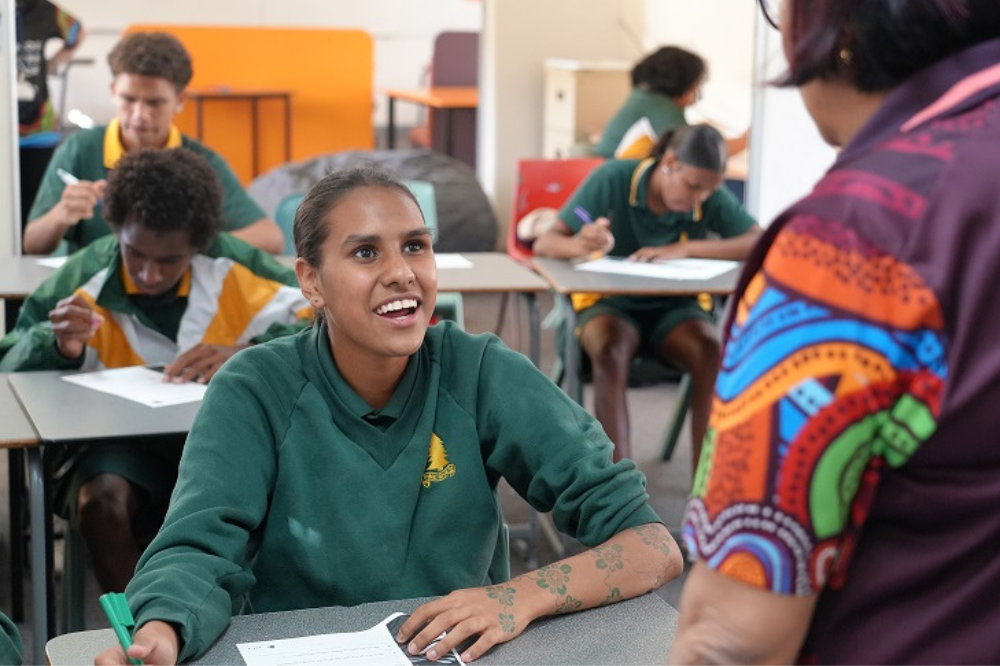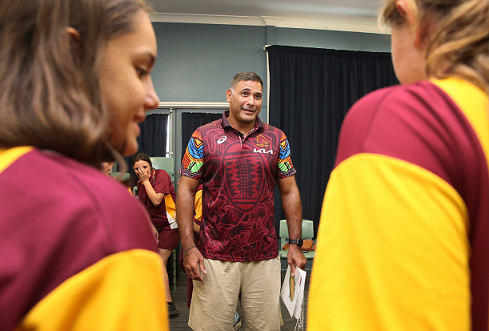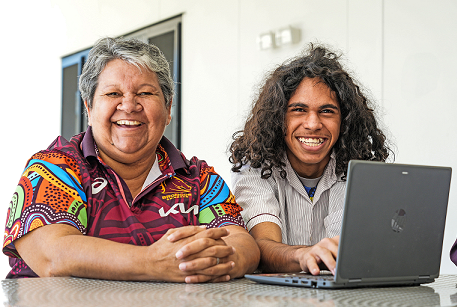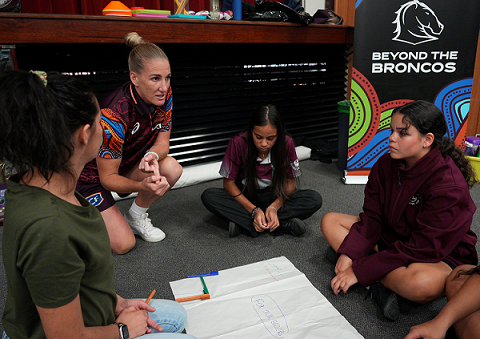
Since being established in 2008, the Federal Government’s Closing the Gap framework has been striving to achieve equality for Indigenous Australians in the critical areas of health, education, and employment outcomes, with a target date of 2031.
However, annual reports designed to track how well Australia is faring in this objective show there has been limited progress.
Fortunately, this challenge has seen many schools double down on their efforts to close these gaps and ensure positive change is made where it counts the most – in the early years of a child’s life.
Launched in 2016, one transformative program has been reaping remarkable results for First Nations students across Queensland and Northern NSW, supporting more than 4,000 students since its inception. A record 281 students graduated from the program last year, bringing the total number of graduates so far to more than 1,000.
The Beyond the Broncos program has been instrumental in advancing learning outcomes, fostering cultural pride, and equipping students to be vocal agents of change.
More than 2,800 Aboriginal and Torres Strait Islander students, ranging from Years 7 to 12, are not only achieving academically but are also making significant contributions within their local communities. Thanks to the program, this wave of young learners is swiftly shaping up to be the next generation of influential leaders.

Unique in its approach, the Beyond the Broncos Program is taught through a cultural perspective. It not only allows students to appreciate and integrate their rich cultural heritage into their school's framework but also equips them with transferable skills that benefit their broader community.
By intertwining culture with education, the program ensures that students carry forward both their heritage and their potential to be the trailblazers of tomorrow.
In the same year the program was launched, The Rivers Secondary College introduced Beyond the Broncos across its three campuses – Lismore High, Kadina High and Richmond River High.
“We recognised we can do better to improve educational outcomes for young Aboriginal and Torres Strait Islander people,” James Whitchard, principal of the school’s Kadina High campus told The Educator.
“Our students responded well to the program, there’s a strong interest in rugby league among our students – but they also engaged enthusiastically with the cultural aspects.”

Whitchard said the program provides participating students the opportunity to build confidence as a learner through connections with Beyond Broncos members.
“Students have spoken in front of audiences to provide an acknowledgement of country where they would not have previously have the courage to do so,” he said.
Chris Randle, The Rivers Secondary College Executive Principal, adds: “Another instance included a student returning to school as a Broncos tutor with the desire to provide support for students, just as she had been supported.”
Forging stronger community ties
Witchard said the program not only allows the school’s students to build better connections with each other but also creates an opportunity for the Student Support Officer (Ange Sines) to build lasting relationships with families.
“Ange is an incredibly well-respected part of our school community and has been pivotal in connecting students and their parents with school,” Witchard said.
“The program has supported the strengthening of relationships and collaborations between schools and families/community, by providing an independent support to ensure students are valued and cared for by schools.”
Randle said the program helps students and families to communicate with schools so they feel heard.
“The Beyond Broncos program supports stronger relationships as it is the conduit between home and school with regular conversations and communications.”
Luke Woodward, The Rivers Secondary College, Richmond River High Campus principal said the facilitator is the key as the connections formed is the strength of the relationships, also adding that Indigenous students who have gone through the program have demonstrated leadership skills and contributed positively to the local community
“We have one student who’s still attending school, still engaging with her classes, but she credits the program with giving her the confidence to successfully apply for a job,” he said.
“For her, it’s a way to take on responsibility, gain skills that will stand her in good stead, and set an example for those younger than her.”
Witchard said the school has seen “amazing things” from students who go through the Broncos Girls Academy.
“Recently, we had a graduate move on to take up an Allied Health traineeship and another current student was recently nominated for the Young Indigenous Entrepreneur of the Year,” he said.
“These students have been great examples of the program's success, but also excellent role models to their peers.”

When asked about some strategies or initiatives that other schools could implement to create a more inclusive and empowering environment for Indigenous students, Randle said communication is a key to working with any stakeholder group.
“Programs like the Beyond Broncos aid in the development of a ‘we’ mindset rather than an ‘us and them’ mindset.”


